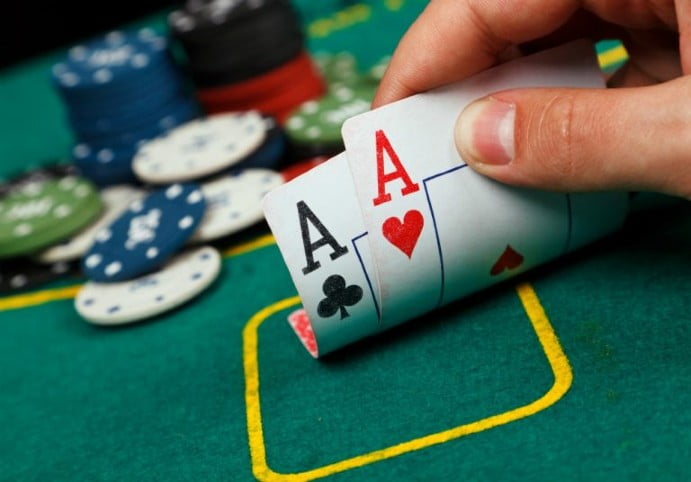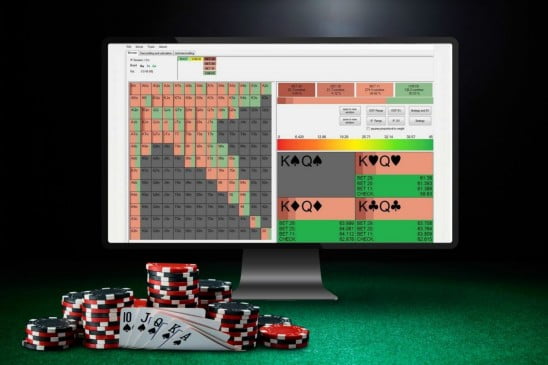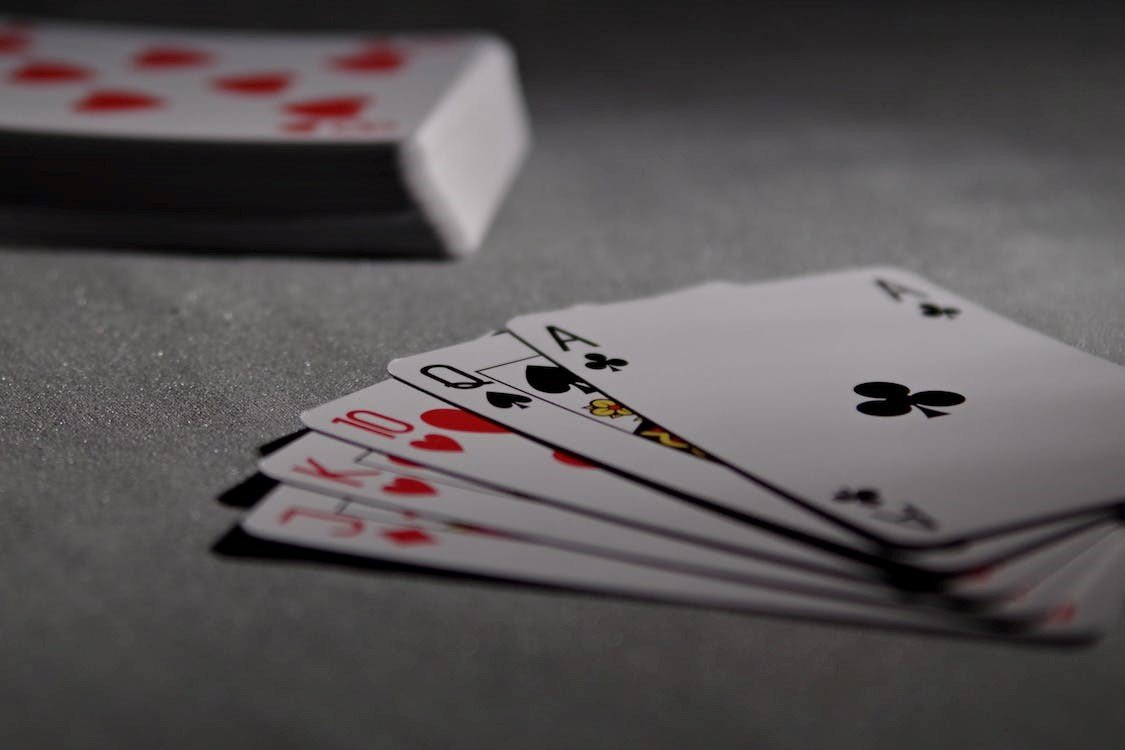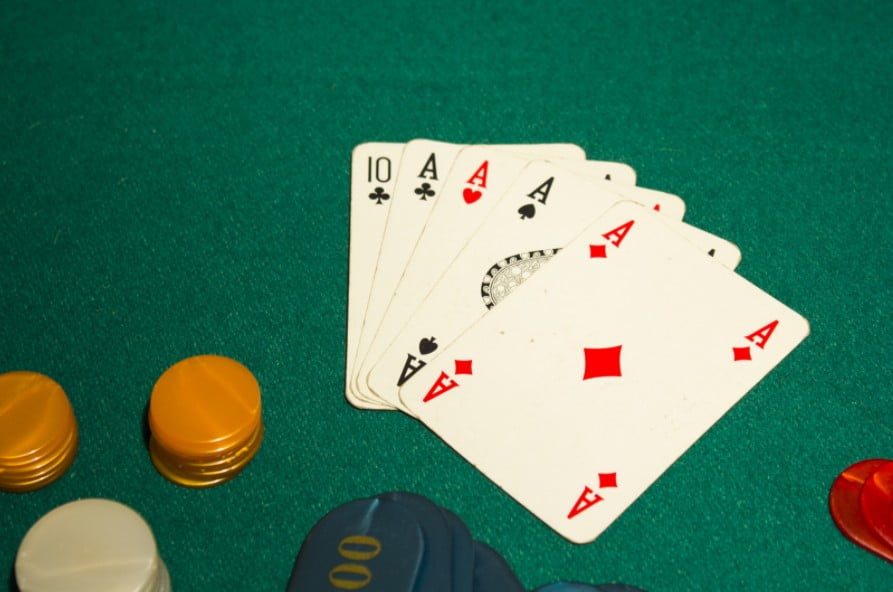Are you struggling to get consistent results in poker? This is the case for the majority of players, as edges in poker are quite slim. But, with a few adjustments to your poker strategy, you can actually turn your game from a slightly losing one or break even, into totally crushing the cash games at your local casino or the stakes you play online. Reading strategy articles regularly is one way to keep improving your game, and we recommend doing so for both recreational and professional poker players, whether you like playing online or live poker.
In this in-depth article you can learn the most crucial concepts about poker strategy and how to apply them at the tables. The information presented is somewhat advanced, and if you’re new to poker, we recommend checking our articles of Poker Hand Rankings and How to Play Poker first.
If you apply this these essential tips correctly at the poker table, these tips will take your game on a higher level. Let’s dive right into the tips!
9 Essential tips
- Tip #1: Think about ranges and frequencies, not specific hands
- Tip #2: Play fewer hands, play them aggressively and preferably in position
- Tip #3: Know the real two reasons for betting (no, they’re not value betting and bluffing!)
- Tip #4: Fast-play your monsters & semi-bluff with your draws
- Tip #5: Defend your Big Blind frequently
- Tip #6: Fold when you’re likely to be beaten
- Tip #7: Play in a good state of mind
- Tip #8: Table select and only play in good games
- Tip #9: Realize tilting will only hurt you
- Extra Tip: Maximize your edge with rakeback
Think about ranges and frequencies, not specific hands
You’ve probably seen pro’s make comments about their opponents having just a single hand on a televised cash game or a tournament and ending up being right on their guess. However, there is a clear distinction between your average poker player and an elite winning pro: The average player tries to put the opponent on an exact hand, while the winning pro think in terms of hand ranges i.e. all the hands their opponent could play that way in some specific situations.
A player’s range might include only nutted hands like the highest set, flush, boat or a straight flush on a specific board, a polarized selection of nutted hands and complete bluffs, or anything in between. The important point is to cut down the possible hand combinations while in hand according to the previous actions this player has taken preflop, on the flop and so on. If you can correctly figure out the frequencies and ranges of your opponents taking a certain line, you can make a much better decision against them.
Play fewer hands, play them aggressively and preferably in position
Intuitively many new players come to the conclusion that winning more pots is better – the more pots you win, the more money you make in theory, right? Surprisingly, the biggest winners in ring games and especially full-ring, don’t win a lot of pots. Instead, they only play a solid selection of hands and win huge pots when they have the odds on their side. Mathematically it’s MUCH better to the favourite to win a few large pots, than to try winning many pots with disadvantageous hands.
The simple yet best approach in poker is to play a solid, rather tight range of hands aggressively. In poker you want to find advantages, and playing tight & aggressively gives exactly those: You usually have a card advantage when entering a pot and you have two ways to win the hand when playing aggressively: By making the best hand or forcing your opponent(s) to fold their equity. If you can combine these with the third advantage, being in position, you’re well on your way to maximizing your profits at the tables!
Know the real two reasons for betting (no, they’re not value betting and bluffing!)
Value betting and bluffing are the reasons for betting in poker according to old consensus, but these are not completely accurate according to game theory. The different odds around the game of poker have been generally common knowledge for quite some time, but the actual poker strategy has evolved a lot due to different computer simulations. In 2017 a poker theory expert named Matthew Janda published a book called ‘’No-Limit Hold’em for Advanced Players: Emphasis on Tough Games’’, where he explains the real two reasons to bet:
Reason 1. Building a bigger pot in case we win it
Reason 2. Preventing our opponent(s) from realizing their equity
These may sound similar to value betting and bluffing, but when we take a closer look, both conditions can be filled at the same time. Think about 3betting with both hands, A♠A♣ and 9♣8♣: You’re building a bigger pot when you 3bet in case you win it, with Aces having a high likelihood for winning and with 98s having a smaller likelihood of winning against your opponents hand.
You’re also preventing your opponent from realizing their equity – let’s say you opponent had J♣T♠ and would be forced to play the rest of the hand out of position if he calls, so he decides to fold to your 3bet. You prevented them from realizing their equity and winning against your Aces or your 98s – both of which will happen a certain amount of time if they called.
Some of the best situations to bet are those where both Reason 1 and Reason 2 are filled simultaneously – your results will be much better when you think your decisions utilizing these reasons than thinking in terms of value betting and bluffing!

Fast-play your monsters & semi-bluff with your draws
Slowplaying and generally playing too passively with your monsters and draws is one of the most common leaks among average players. This mostly comes from the belief of opponents folding to their aggression every time you have a strong hand. Of course it can be disappointing when you flop a great hand and your opponent folds to a bet, but the even bigger disappointment is missing out on the potential of winning a huge pot instead of one or being outdrawn by not betting aggressively enough.
There are some exceptions though. For example, on dry flops such as A♣9♠4♦ it can be okay to slowplay your strong hands, as your opponents might take this as a sign of weakness and try to bluff you off your hand. On this kind of boards, the bluffs of your opponents are quite unlikely to improve enough to beat your strong hands and it’s very rare they have a draw here. Let’s say you had pockets nines for a middle set on that flop – it would be actually great if your opponent hit trip aces holding one ace in his hand to lose to your hand that would be improved to a full-house, or otherwise improved to the second best hand, meaning they would keep betting more money into the pot. If he has the higher set with pocket aces, you will lose a lot, but that’s not our main concern in the hand since the probability of this set over set situation is really low – the most important point is think how to maximize your EV against the whole range of your opponent.
On a wet flop like J♣T♠9♣ it’s much better to play more straightforward with your strong hands, because many turn and/or river cards might improve your opponent to a winning hand or stop them from giving you action, if the board gets too scary for their second best hand to continue.
Defend your Big Blind frequently
Each time you’re dealt a hand in Big Blind, you’re getting better odds to call against a raise preflop since you already have 1BB invested in the pot. Due to this discounted price to call preflop, you can profitably call more hands preflop last to act than you would from other positions like Small Blind or Cut-off. To give you some guidance in how to approach this situation, you should follow these 3 points:
Point 1. Position of the raise and other callers: You should play much tighter against early position raises, and if there are 1 or more callers already you should only choose hands that play well multiway.
Point 2. Raise sizing: The smaller the size, the more hands you should defend. The larger the size, the less hands you should defend.
Point 3. Effective stack sizes: Effective stack size is the smaller of the two stacks of yours and your opponent. When effective stack size is small like 20-60BB, you should fold most of your speculative hands and aim to play higher cards. When effective stack size is bigger, +100BB, you can play a wider range of hands.
Additionally, you should consider the skill difference between you and your opponent. Against superior opponents, you need to play tighter as they’re less likely to make mistakes. But, if the raiser is a recreational player, you should be able to outplay them postflop more often than not, allowing you to call a wider range of hands.
Fold when you’re likely to be beaten
Is folding a great hand fun when you know you’re beaten? Not at all. But is it profitable in the long run ? Absolutely. In any poker game, every dollar saved with a good fold is as valuable as every dollar won by betting. Making good folds is not the most satisfying experience in poker, but you would rather lose a small or medium pot than a big one.
Yet, laying down a good hand when you should is one of the hardest things to do, sometimes even for professional players. Human beings tend to be curious and you can’t win the pot by folding. Rest assured: You actually can outplay the other player by folding in a spot where he would pay you off, if the cards were reversed. You might lose an individual hand, but you will win the war by playing better than your opponent.
Play in a good state of mind
The main reason for recreational players to play poker is having fun and enjoying the social aspect of the game while having a thrill. Whether you are playing to win or not, you should always try to enjoy yourself at the tables, even if play a disciplined game and are looking to make money by playing. Many of the long-time biggest winners in poker are very strict about playing only when they feel balanced and are in a good state of mind. Playing when you’re fatigued, frustrated or simply having your mind elsewhere is a quick way to lose your edge at the tables, so don’t do that!
If the possibility of losing money in your next session is on your mind and bothers you, you should probably skip playing and take some rest & do other activities instead. Your bankroll will thank you later!
Table select and only play in good games
No matter how good you are at poker, if you play against competition better than yourself you will lose in the long run. Selecting good games is maybe the most important single discipline that will greatly affect your long-term results.
When looking for good games, you want to have such players at the table who limp or play passively, are playing a lot of multiway pots, and 3bet & 4bet very rarely. Alternatively, if they 3bet & 4bet pretty every second hand, this is also a game you want to play at, as they will be putting too much money in the pot with weak holdings!
Some might argue that you never get good if you don’t play against better players. While this is somewhat true, you can get the best of both worlds by playing in a good game and becoming a better player if you play in a game where most of the people play terrible so you have an edge, but a few players are really good at what they do and you can observe and learn from the hands they play. Still, in most cases you should just go for a game with the absolute worst players you can find.
Realize tilting will only hurt you
Each player at the table will eventually run worse in poker than they imagined was even possible. For those unprepared for it, it will be a nightmarish experience that seems to never end – sadly, for many players the prolonged downswing will be the destroyer of their bankroll and possibly even their whole poker career.
Once tilt creeps in, you’re no longer playing your A-game that gives you the edge over your opponents. Even though it might feel like a good idea to go after your opponents with a huge bluff with no outs when called, the only person that will get hurt in the process is you. Every minute you play when tilted can cause you to lose a lot of money that you worked hard for by playing disciplined, winning poker in a good mindset.
First step is to learn to recognize when tilt arrives, and what kind of changes it causes to your thought process and mood when playing. Then you need to either take a break, call it a day or try to tame the tilt to continue playing – the last option is obviously the hardest one to execute in practice. To learn more about tilt control, check out our article from Beasts Of Poker’s pro team member TheJudas.

Extra Tip: Maximize your edge with rakeback
In the long run you will play hundreds of thousands or even millions of hands, and each hand that advances to the flop will be raked by the house. If you can get a portion of this rake paid back to you each time you play, it will eventually create a compounding effect over months and years to help you multiply your bankroll. The simple example would be if you play 1000 hands and rake 10 cents per hand on average, you would create 100 usd in rake. Now if you have a rakeback deal of 50% in place from Beasts of Poker, your account would be credited with rakeback of 50 usd in the beginning of next month. It’s simply an edge you don’t want to miss! You can read more about the importance of rakeback.

Want to play where the action is?
Don’t swim with the sharks & professionals. Jump on GGPoker filled with fun players and we’ll get you a sign-up bonus up to $600 – sweetened with an extra $30k exclusive rake race.
Conclusion
Poker is a game of small edges that compound over time, creating both large winners and large losers. The adjustments you need to make to belong to the winners are often subtle and small, as there is no single ‘holy grail’ strategy that will ensure your success in poker – it comes down to many aspects that you need to master over time.
As Doug Polk said, no matter how bad you run or whatever is thrown at you at the tables, you can always focus on playing your absolute best game possible. By implementing these 9 strategy tips in every session and working hard on your game, it’s possible to achieve that.
Become the player you were born to be and start dominating the games – Continue reading more tips & articles in Poker Articles!
Best of luck at the tables!
Author

Beasts Of Poker
Editorial team curates and publishes in-depth reviews and ratings of online poker sites by using their extensive industry experience. Content is created by both in-house team of experts and outside authority contributors.









